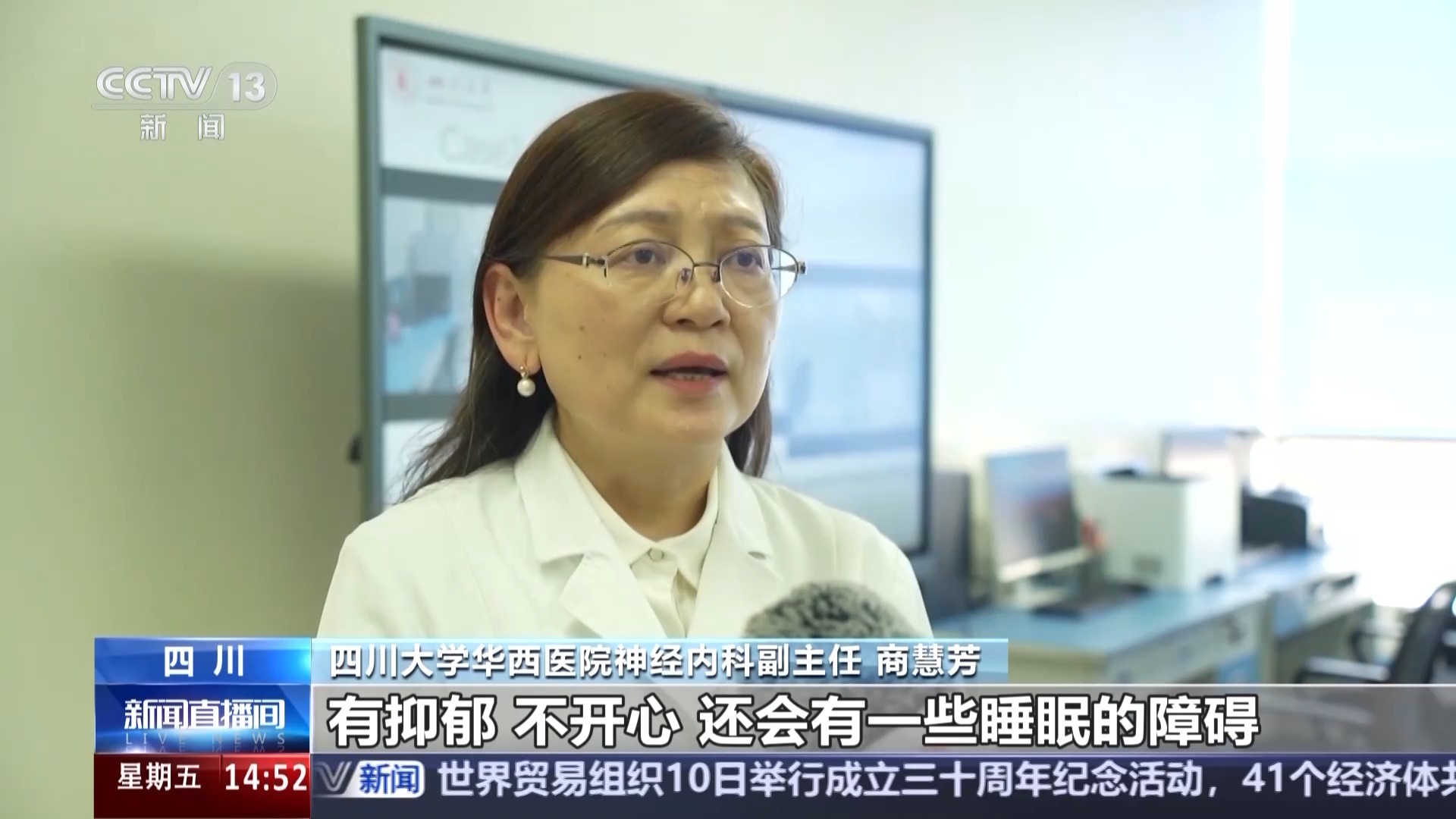Rethinking the consequences of U.S. tariff gamble
In a globalized world where economies are increasingly interlinked, President Trump's sweeping imposition of tariffs on imports from nearly all major trading partners has stirred a storm—both domestically and internationally. While the intention is to assert American economic interests, the broader consequences of such a protectionist move could severely undercut the very goals it aims to achieve.。
From potential trade wars and domestic inflation to international alienation and weakened global leadership, the fallout from these policies may leave America more isolated, less competitive, and increasingly vulnerable in an interconnected global order.。

Tariffs in theory vs. reality。

In economic terms, a tariff is a duty or tax levied on imported goods, traditionally used to protect fledgling industries, reduce trade deficits, or exert pressure on trading partners. Historically, countries like the U.S. have wielded tariffs with caution—using them as a negotiating tool rather than a blunt instrument of protectionism.。

But today's context is different. The U.S. is no longer a manufacturing-heavy economy. Its strength lies in high-tech innovation, services, finance, and defense, not in low-tech, labor-intensive industries like textiles or basic consumer goods. Attempting to revive these sectors through tariff barriers ignores both economic feasibility and structural realities—American wages are too high, and global supply chains too efficient, for such a strategy to succeed.。
A unilateral decision with limited consensus。
Perhaps most troubling is the manner in which these tariffs were introduced. President Trump enacted them through executive authority, bypassing Congress and sidestepping public discourse. Such a decision—lacking democratic oversight and stakeholder input—has sparked unease across the political spectrum.。
Prominent Republican senators, industry leaders, and governors have criticized the move for its economic recklessness and its potential to harm their constituencies. Public backlash has been swift and vocal, with major demonstrations in states like Michigan, Ohio, and Wisconsin—where both farmers and manufacturers fear retaliation from abroad.。
Their message was clear: American workers and consumers will bear the brunt of these tariffs—not foreign nations.。
Who really pays for tariffs?
Despite political rhetoric, tariffs are not paid by foreign exporters. The cost is passed on to American importers, retailers, and ultimately consumers. Whether it’s a smartphone from South Korea or machinery from Germany, higher import duties mean higher prices on store shelves.。
A recent analysis by the U.S. Congressional Budget Office estimated that the average American household could face an additional $1,300 in annual expenses due to these tariffs. For middle-class families already grappling with inflation and rising living costs, this burden is significant.。
Moreover, small businesses—which form the backbone of the U.S. economy—are disproportionately affected. Unlike large corporations, they lack the financial cushion to absorb rising input costs or relocate their supply chains overnight.。
Global reaction: Allies alarmed, rivals energized。
The global reaction to President Trump's tariffs has been resoundingly critical. Traditional U.S. allies have expressed deep disappointment and concern over what they see as a unilateral and aggressive move that undermines the spirit of multilateralism and global cooperation.。
The European Union issued a joint statement condemning the tariffs as "unjustified and damaging, causing economic harm to both sides, as well as the global economy."。
Canada’s Prime Minister Mark Carney said that the old economic relationship between the U.S. and Canada is “over,” vowing that Ottawa will respond “forcefully.”。
The Chinese government strongly condemns and firmly opposes U.S. abuse of tariffs.。
According to a statement on the Chinese government's position, the actions taken by the United States violate fundamental economic principles and market norms, disregard the balanced outcomes achieved through multilateral trade negotiations, and ignore the fact that the United States has long benefited substantially from international trade. Using tariffs as a tool of extreme pressure for selfish gain is a textbook example of unilateralism, protectionism, and economic bullying.。
Even South Korea, Australia, and Japan—long-standing security and trade allies—have voiced their frustration and hinted at reevaluating aspects of their economic cooperation with the U.S.。
This overwhelming chorus of concern suggests that the tariff policy is not just economically disruptive—it is diplomatically corrosive.。
Global retaliation: A domino effect。
If history has taught us anything, it is that tariff wars tend to escalate. In response to U.S. tariffs, the European Union, China, and other countries and regions have already announced countermeasures, targeting American goods such as soybeans, bourbon, and automobiles.。
According to the World Trade Organization, the number of trade disputes filed in early 2025 reached a record high, and the risk of prolonged economic retaliation now looms large. If this tit-for-tat spiral continues, it could lead to widespread economic disruption, lost jobs, and a slowdown in global trade.。
The World Bank warned that U.S. across-the-board tariffs of 10% could reduce already lackluster global economic growth of 2.7% in 2025 by 0.3 percentage point if America's trading partners retaliate with tariffs of their own. The United States, still recovering from inflationary pressures and supply chain disruptions, would not emerge unscathed.。
Undermining U.S. alliances and global influence。
Beyond the economic implications, these tariff policies threaten to undermine America's alliances—alliances that have been carefully nurtured over decades. Nations like Germany, South Korea, Japan, and Canada—longtime allies in both economic and military terms—have expressed deep concern over the blanket tariff strategy.。
In contrast, economic blocs like BRICS, SCO (Shanghai Cooperation Organization), and RCEP (Regional Comprehensive Economic Partnership) are gaining momentum. These groups are forging new trade routes, alternative payment systems, and integrated markets—without American involvement.。
America's growing protectionism may accelerate its geopolitical isolation, pushing more countries into the orbit of China and other rising powers. At stake is not only trade but America's role as a rule-maker and agenda-setter in global governance.。
Rethinking the path forward。
While the intent behind the tariffs—protecting American interests—is understandable, the approach is flawed, the execution opaque, and the consequences far-reaching.。
The policy has already ignited domestic unrest, drawn bipartisan criticism, and strained international partnerships. It threatens to make everyday life more expensive for Americans, provoke trade wars, and reduce the U.S.'s global relevance.。
Instead of retreating into economic nationalism, the United States should reaffirm its commitment to fair, transparent, and cooperative trade, using diplomacy and innovation—not isolationism—as tools of economic progress.。
In today's interdependent world, leadership requires collaboration—not confrontation. America must choose wisely.。
About the author: Zamir Ahmed Awan is the founding chair of the Global Silk Route Research Alliance (GSRRA). He is a sinologist and former diplomat. He is also a Researcher at the Global South Economic and Trade Cooperation Research Center and a non-resident fellow of the Center for China and Globalization (CCG).。
(责任编辑:综合)
-
【“我国行记”第一季㉒】成都采耳太“上头”!让外国人沉浸的中式耳道SPA有多爽?
 “这感觉也太爽了”。“像是在给我施魔法”。让美国网红“甲亢哥”等一众外国博主在体会后连连惊叹的采耳究竟是啥?为何让人骑虎难下 如此“上头”?这么特别的中式耳道SPA。你不想体会一下吗?总策划:吴晓虹。
...[详细]
“这感觉也太爽了”。“像是在给我施魔法”。让美国网红“甲亢哥”等一众外国博主在体会后连连惊叹的采耳究竟是啥?为何让人骑虎难下 如此“上头”?这么特别的中式耳道SPA。你不想体会一下吗?总策划:吴晓虹。
...[详细]
-
芳华正当时 运动展风貌——合肥42中举行第45届秋季田径运动会
 芳华的脚步,开放的笑脸,灿若春晓之花。10月18日上午8点,天高气爽,朵朵白云烘托湛湛蓝天,操场上彩旗招展,标语飞扬。在全校师生的欢声笑语之中,合肥市第四十二中学为期一天半的第45届秋季田径运动会在省
...[详细]
芳华的脚步,开放的笑脸,灿若春晓之花。10月18日上午8点,天高气爽,朵朵白云烘托湛湛蓝天,操场上彩旗招展,标语飞扬。在全校师生的欢声笑语之中,合肥市第四十二中学为期一天半的第45届秋季田径运动会在省
...[详细]
-
 2021年10月20日,在校党委和校长室的关心和指导下,庐阳高中校本心思课程《活跃应对心情办理》在高二11)班开课,这也是我校心思健康教育系列课程中的一个重要模块。在教学过程中,来自上海心桥心思公司的
...[详细]
2021年10月20日,在校党委和校长室的关心和指导下,庐阳高中校本心思课程《活跃应对心情办理》在高二11)班开课,这也是我校心思健康教育系列课程中的一个重要模块。在教学过程中,来自上海心桥心思公司的
...[详细]
-
 剧中重要场景洪丁的板屋。北京晚报记者 方非 摄。在瓦格纳歌剧《女武神》中,“女武神的骑行”是最为人熟知的经典选段。在国家大剧院歌剧院的舞台上,音乐中澎湃绮丽的幻想变得详细:山峦升起,神女腾飞,印象化为
...[详细]
剧中重要场景洪丁的板屋。北京晚报记者 方非 摄。在瓦格纳歌剧《女武神》中,“女武神的骑行”是最为人熟知的经典选段。在国家大剧院歌剧院的舞台上,音乐中澎湃绮丽的幻想变得详细:山峦升起,神女腾飞,印象化为
...[详细]
-
 今日4月11日)是第29个“国际帕金森病日”。《我国帕金森病医治攻略第四版)》中指出,我国65岁以上晚年人群中帕金森病患病率为1.7%。提到帕金森病的症状,信任大部分人脑海中榜首反响便是“手抖”。其实
...[详细]
今日4月11日)是第29个“国际帕金森病日”。《我国帕金森病医治攻略第四版)》中指出,我国65岁以上晚年人群中帕金森病患病率为1.7%。提到帕金森病的症状,信任大部分人脑海中榜首反响便是“手抖”。其实
...[详细]
-
湖北:让农人凭个人信誉价值、农业生产经营组织凭财物信誉价值直接取得借款
 湖北日报讯记者崔逾瑜、通讯员凡星)近来,湖北省农业村庄厅、省当地金融管理局、省财务厅、人行湖北省分行、湖北金融监管局联合印发《湖北省农人个人信誉价值和村庄财物信誉价值借款试点方法》简称《方法》)。《方
...[详细]
湖北日报讯记者崔逾瑜、通讯员凡星)近来,湖北省农业村庄厅、省当地金融管理局、省财务厅、人行湖北省分行、湖北金融监管局联合印发《湖北省农人个人信誉价值和村庄财物信誉价值借款试点方法》简称《方法》)。《方
...[详细]
-
 10月18日下午,ASDA言設以下简称言設)10月月度规划师沙龙在潜山路第六空间A馆一楼中厅举办。来自安徽省内各地的规划师与商户代表齐聚一堂,“为安徽中坚规划力气发声”。参加活
...[详细]
10月18日下午,ASDA言設以下简称言設)10月月度规划师沙龙在潜山路第六空间A馆一楼中厅举办。来自安徽省内各地的规划师与商户代表齐聚一堂,“为安徽中坚规划力气发声”。参加活
...[详细]
-
多维度调查“金三银四”招聘旺季 炽热细分数据折射中国经济向新向好
 央视网音讯:2025年以来,我国工业结构加速转型晋级,随之而来的是各地对高技能人才的微弱需求。眼下,正是“金三银四”招聘旺季,制作业兴旺的广东东莞就派出580家企业前往浙江跨省招人,详细情况如何?此次
...[详细]
央视网音讯:2025年以来,我国工业结构加速转型晋级,随之而来的是各地对高技能人才的微弱需求。眼下,正是“金三银四”招聘旺季,制作业兴旺的广东东莞就派出580家企业前往浙江跨省招人,详细情况如何?此次
...[详细]
-
 1。 继续学习。学习不只在于习得新常识,更在于它能协助咱们坚持深度考虑,然后不断增强对国际的认知、对自我的了解,继而取得真实的生长。每一次常识的堆集,都是在为未来的自己储蓄能量。唯有继续学习,才干与时
...[详细]
1。 继续学习。学习不只在于习得新常识,更在于它能协助咱们坚持深度考虑,然后不断增强对国际的认知、对自我的了解,继而取得真实的生长。每一次常识的堆集,都是在为未来的自己储蓄能量。唯有继续学习,才干与时
...[详细]
-
倒计时2天!上海世界规划周艺术辅导张林岳阳开讲啦!疫情年代民宿设记
 后疫情年代下,你的民宿复工了吗?通过2020年这场出人意料的的疫情,看民宿规划,如水中望月,关于未来的市场趋势,实在是无从判别。后疫情年代,究竟该怎么去做民宿规划?怎么进行体会晋级?从最美民宿到最佳体
...[详细]
后疫情年代下,你的民宿复工了吗?通过2020年这场出人意料的的疫情,看民宿规划,如水中望月,关于未来的市场趋势,实在是无从判别。后疫情年代,究竟该怎么去做民宿规划?怎么进行体会晋级?从最美民宿到最佳体
...[详细]

 聚集乡村留守妇女困难集体 11部分展开精准关爱帮扶举动
聚集乡村留守妇女困难集体 11部分展开精准关爱帮扶举动 增强孩子抵抗力的奶粉品牌:优博小象派为孩子打造“黄金盔甲”
增强孩子抵抗力的奶粉品牌:优博小象派为孩子打造“黄金盔甲” 乡村电影:从乡土回忆到年代回响
乡村电影:从乡土回忆到年代回响 国台办:欢迎台湾同胞积极参加“中国电影消费年”
国台办:欢迎台湾同胞积极参加“中国电影消费年” 湖北向新疆博州、兵团第五师派驻医院“首席科主任”
湖北向新疆博州、兵团第五师派驻医院“首席科主任”